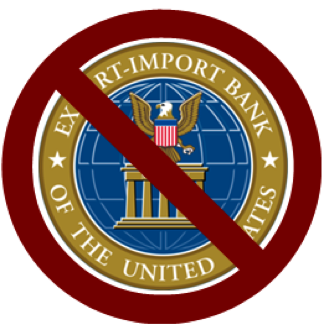
That was House Speaker John Boehner (R-Ohio) calling for an act of Congress to wind down the Export-Import Bank of the United States, the $27.5 billion a year operation that, according to its charter, is supposed to “facilitate exports of goods and services.”
Boehner warned, “[T]here are thousands of jobs on the line that would disappear pretty quickly if the Ex-Im Bank were to disappear. So I have told the chairman he needs to come up with a plan, because the risk is that if he does nothing the Senate is likely to act, and then what?”
There is only one problem.
“Congress need take no action to unwind the Ex-Im bank, because existing law already provides for the orderly liquidation of the bank,” noted Americans for Limited Government President Rick Manning in a statement.
In the bank’s sunset clause — the current authorization expires June 30 — it states “the provisions of this section shall not be construed as preventing the bank… from continuing as a corporate agency of the United States and exercising any of its functions subsequent to such date for purposes of orderly liquidation, including the administration of its assets and the collection of any obligations held by the bank.”
Meaning, said Manning, “A lapse of authority will simply mean the bank’s operations continue until all existing obligations are settled. It will continue collecting interest payments to maintain those operations.”
He added, “Why would the House pass such a redundant piece of legislation?”
In fact, the bank already has a contingency plan, notes the Congressional Research Service in a March 2015 publication: “[A]ccording to Ex-Im Bank, if its authority were to lapse, no new commitments (including new loan, guarantee, or insurance transactions) could be approved by its Board of Directors or under delegated authority, but prior obligations (including disbursements on already-approved final commitments) could continue. The Bank could continue to make expenditures in its operations (including salary, rent, etc.), while developing a plan for orderly liquidation.”
So, if the Congress really does want to unwind the bank, the way forward is simple.
“We urge Chairman Hensarling to do all that is necessary to unwind the bank in an orderly manner, which is absolutely nothing,” Manning concluded.
Robert Romano is the senior editor of Americans for Limited Government.






